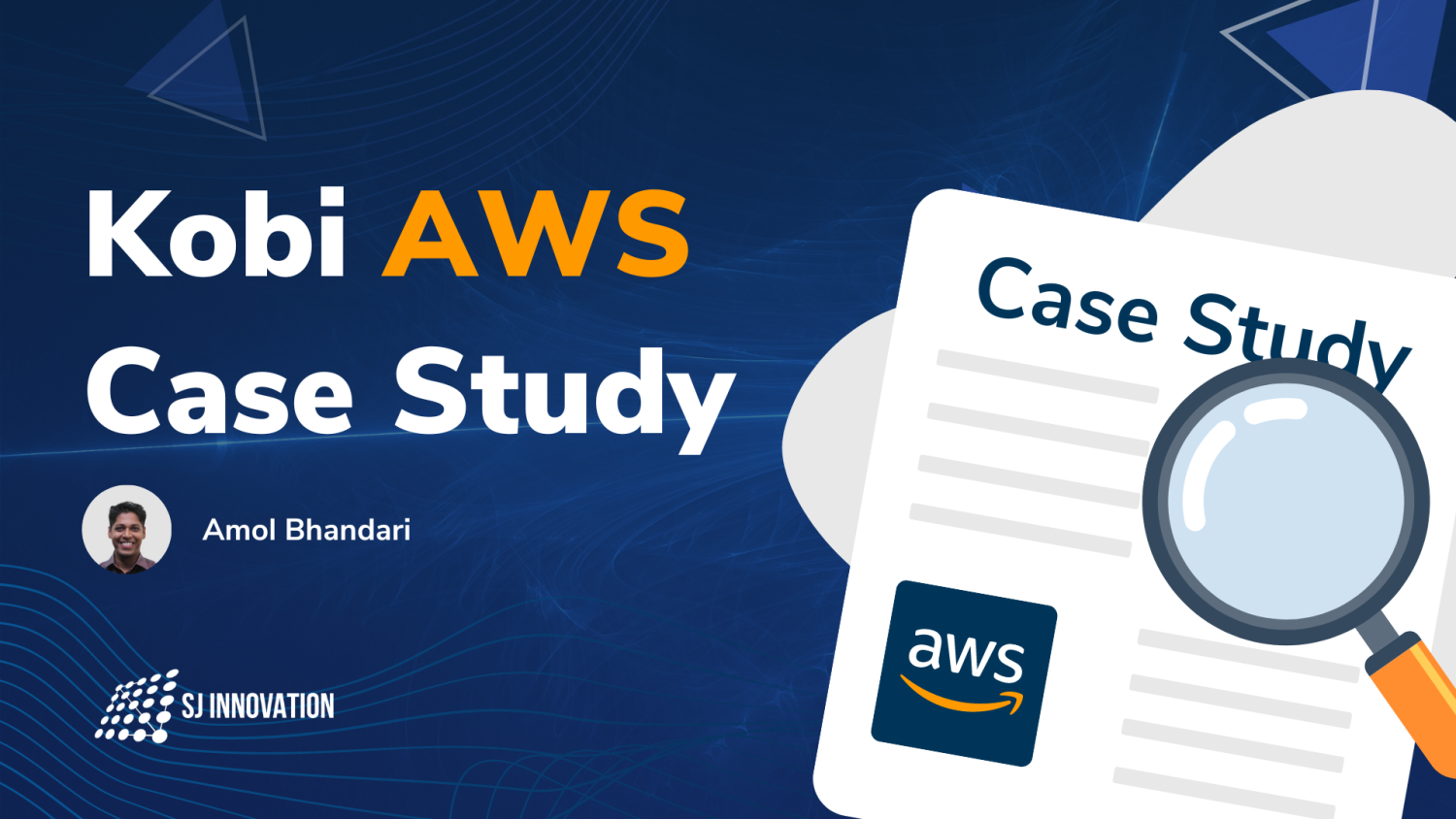Kobi AWS Case Study

Drive Growth and Regulate Compliance, Scalability, and Security for Financial Services with Amazon EC2 , Elastic Load Balancing and Cloudwatch
Ever since cloud computing was pioneered, the hindrances of sticking to a traditional IT infrastructure became more obvious for everyone to see. Today, how and the extent to which businesses struggle to make ends meet in a bid to adapt to rapid marketplace changes can be witnessed in a variety of functioning problems. This includes resilience and scalability issues, security problems, and lost productivity caused due to downtime since the end-users wait for IT support. One of the major reasons why companies and businesses are grappling to adapt to emerging trends is because their technological environments are not effective enough to sense and accordingly respond to these fluctuating changes. Given this situation, one thing is obvious — companies have little choice but to warm up to the idea of cloud computing.
The technological prowess of cloud computing has steered companies and industries in the right direction. Today, you can see how drastically this technology transforms the way the world carries out social and daily business activities. Cloud computing blends in seamlessly with the everyday functioning of a private, public, or even hybrid setup. It goes to show that cloud computing, specifically, the introduction of AWS, is becoming a progressively important aspect of the technology and business strategy of many companies. Cloud services make it easy for companies and industries to turn IT resources into an elastic and flexible set of resources which simplifies the process of managing and scaling requirements based on varying business needs.
How Popular Brands used Amazon EC2 and Amazon RDS Service Disruption to reduce crashes and enhance flexibility in operations
It doesn’t matter what the plan for your evolving IT infrastructure is, tapping into AWS and its unique cloud technologies makes it easy to innovate faster. It provides you with the ability to create flexibility for your business while offering you complete control over your computing resources. Here is a brief track record of some of the happy customers AWS benefits.
To begin with, GE Appliances required productive and consistent communication among its team members. It was also facing configuration problems and a seamless solution was needed for its logging process. With the introduction of AWS tools, the company resolved these issues and more as it gained complete visibility into its hybrid cloud environment. Besides this, GE Appliances also needed to strengthen its security measures. Using the help of System Manager and the other AWS Management Tools, the company could effortlessly create and utilize CI/CD processes. This made it easier for the company’s business teams to visualize and obtain company data promptly.
Cathay Pacific Airways, an internal airline registered in Hong Kong, needed a more impactful website and an overall smooth booking engine. After all, if customers face issues in booking tickets, revenue is going to suffer. In short, it required a high-performing website with a reliable booking engine infrastructure, and incorporating AWS helped to do a world of good. It drastically changed the performance of the website applications for the better. The move to AWS minimized downtime which in turn assisted the airline in driving online revenues. Since AWS offered the benefit of speed in both provisioning and development, the company could focus its energies on software innovation.
Amazon RDS is another technology that makes setting up, operating, and scaling a relational database in the cloud seamless. While it automates administration tasks which includes database setup, backups, and hardware provisioning, it offers low cost and resizable capacity. These facets proved helpful for Unilever, the consumer goods giant. It needed a redesign of its infrastructure to manage its digital marketing plan. Unilever wanted to standardize its environment so a more rapid time to market can be established and supported. The migration to AWS offered better operational efficiency as well as business agility. While Unilever benefited from the prompt responsiveness of AWS, it also helped save time.
Case Study: Migrating to AWS Enhanced Flexibility, Responsiveness, and Uptime for Kobi
This case study focuses on AWS Cloud Services and its ability to form custom-made ideas that are advantageous to the end-user in every possible way.
The Challenge
Initially, Kobi, our esteemed client’s financial services firm needed a solid platform that could manage the funding for various kinds of users, whether it was for a company or an individual. Since multiple in-house and third-party API calls were incorporated into his platform, the financial services website needed to have fault tolerance so that it could continue to operate even in case of a failure or error. Even if a user didn’t have a valid bank account or social security number, it needed to have a log that was regularly maintained to understand the causes of errors or failures. As the platform was built on Django and React Techstack, it was also expected that the server supports python dependencies and the platform runs smoothly with less to no downtime. Kobi also wanted a platform with higher competence to make it possible to simultaneously check the work and run unit tests whenever required.
Success Story
After a thorough analysis of all of these issues and necessities, Kobi decided to transition to AWS. We at SJ Innovation began devising a plan by first offering the option of using Elastic Beanstalk or EC2 for the computation layer to host the platform so users can easily access it. To manage the traffic demand and fault tolerance, we suggested using auto-scaling with a load balancer.
We also suggested using Amazon Cloudwatch to track down the issues and faults for user inputs. This made it easier to log all access patterns and errors. As performing unit tests was a requirement, we put together a strategy to develop multiple deployment environments. This promoted stability so that testing could be conducted seamlessly without impacting the development pace. Further, in an attempt to make deployment convenient, CI/CD pipeline was incorporated where Github was used for version control, and Codedeploy was utilized to deploy the code on EC2 instances. Lastly, to maximize network security, we used AWS Certificate Manager while for data storage, we believed Amazon RDS Postgres Database Engine to be the smarter choice. All in all, these adjustments helped tick all the boxes and made our client’s website leverage its capabilities optimally to deliver a positive experience to its end users.
We help you every step of the way
If you want clarifications on the regulatory, security, and compliance obligations financial service institutions encounter and how AWS helps you with resources and tools to form a compliant and safe environment, reach out to us. We would love to hear from you!
Request a Quote Now!

Why Do We Debug Code?

Sjinnovation’s Project Management Process


